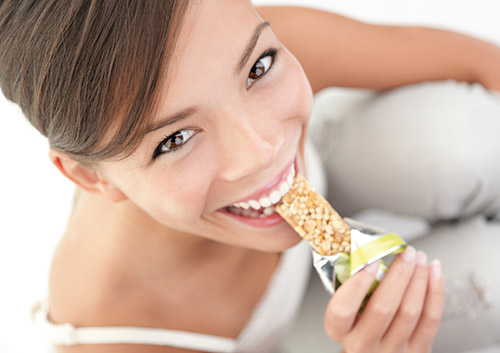Ancient Grains for Modern Diets
May 24th, 2025

One of the latest foods in dietary news is also one of the oldest—ancient grains. What makes these old-timers so appealing to modern tastes? Let’s run down the menu!
Why Are Some Grains Called “Ancient”?
Unlike grains such as modern wheat, which have been crossbred for hundreds of years to bring out certain qualities, ancient grains are generally considered to be grains which have been cultivated in the same way and in the same form for centuries.
Not All Grains Are the Same
Grains are harvested from the seeds, or kernels, which grow on top of cereal grasses. But because they have many of the same uses, and many of the same nutrients, ancient grains also include pseudocereals, which are seeds and fruits from non-grasses. These seeds can be ground just like grains or used whole. This is an important distinction for many diet-mindful people because grains derived from pseudocereals are gluten-free.
The Health Benefits of Ancient Grains
Ancient grains are whole grains. This means that the seeds of ancient grains have their bran, germ, and endosperm intact—which means that all their nutrients, proteins, and fiber also remain intact. Refined grains like white flour and white rice have removed many of these good-for-your-body elements by removing the bran and germ, leaving only the endosperm behind.
The Dental Benefits of Ancient Grains
Of course, any food that offers better nutrition is better for your teeth and gums. But there’s an added bonus in the more complex structure of intact grains—they take more time to digest.
With foods made with refined grains, digestion starts taking place quickly—in fact, saliva starts the digestive process right in our mouths while we eat. And as these carbs break down into sugars, they provide a feast for the oral bacteria which convert that sugar into acids.
These acids, in turn, attack tooth enamel, leaving weaker spots which can grow into cavities, and irritate delicate gum tissue. What’s more, refined carbs tend to be extra sticky, lingering in the mouth, between the teeth, and on the enamel instead of being washed away by saliva.
So, Have Any Suggestions for My Shopping List?
We do! Because all ancient grains are loaded with protein and fiber, they are all going to be a rich source of these healthy essentials. And they can offer additional minerals, vitamins, and antioxidants to your diet. If you’re inspired to add a bit of history and geography to your plate, here are some ancient grains to consider:
- Amaranth
Cultivated by the Aztecs, this gluten-free pseudocereal seed is high in manganese, magnesium, copper, phosphorus (which helps keep your enamel strong), and also provides vitamins B1 (thiamin), B6, and B9 (folic acid).
- Barley
Grown for thousands of years in Asia and Europe, barley is one of the first cultivated grains. In its whole grain form, barley offers us selenium, manganese, copper, vitamins B1 and B3 (niacin), and antioxidants. Whole barley has a very tough outer shell and takes quite a bit of cooking, so lightly pearled barley can be substituted with only a small loss of bran.
- Buckwheat
Originating in Asia, buckwheat quickly spread to Europe and eventually made its way to early American fields. Another pseudocereal, buckwheat seed is often ground for flour, and is a good source of copper, manganese, magnesium, phosphorus, vitamins B2 (riboflavin), and B3. Not to mention, gluten-free!
- Bulgur
Often used in Middle Eastern and Mediterranean cooking, bulgur is a cracked wheat cereal grain. Bulgur adds, among other nutrients, manganese, magnesium, copper, iron, and vitamins B3 and B6 to your diet.
- Farro
“Farro” comes from an Italian word which can refer to three different varieties of wheat, with different cooking times, textures, and flavors. These grains were first cultivated in the Middle East and the Mediterranean region thousands of years ago, and are still popular today thanks to their nutty flavor and chewy texture. Try farro for a tasty serving of magnesium, zinc, vitamin B3, and antioxidants.
- Freekeh
Common in Middle Eastern, North African, and Mediterranean cuisine, freekeh is another form of cracked wheat. It’s harvested when the plants are young, so it has extra protein and fiber, as well as being a good source of iron.
- Quinoa
Another pseudocereal, quinoa originated in South America. It’s gluten-free, and filled with minerals such as manganese, magnesium, phosphorus, and vitamin B9. It’s also a complete protein, which means it contains all nine of the amino acids our bodies can’t produce on their own.
- Spelt
One of the largest wheat crops in Europe, and grown around the world, spelt’s nutty taste is an added bonus to its stores of manganese, copper, phosphorus, and vitamin B3.
- Teff
The smallest of the ancient grains, teff is an African variety of millet, a pseudocereal full of nutrients such as manganese, copper, iron, and calcium (another mineral which is vital to dental health), as well as vitamins B1 and B6. Try brown teff for its naturally sweet flavor.
This is just a taste of the ancient grains available to you, with many others from around the world waiting to be harvested for your table. But you needn’t choose ancient grains to receive all the nutritional benefits of whole grains.
Brown rice, whole wheat products, corn, oats—all these common ingredients are easily available forms of whole grains. Check the grain aisle in your local market for some new ways to brighten your recipes, to increase your dietary protein and fiber, to add minerals and vitamins, and to provide some healthy alternatives to refined grains. Your body—and your teeth—might thank you!




 Website Powered by Sesame 24-7™
Website Powered by Sesame 24-7™